KINO Meeting Archive 1 04.2023―03.2024
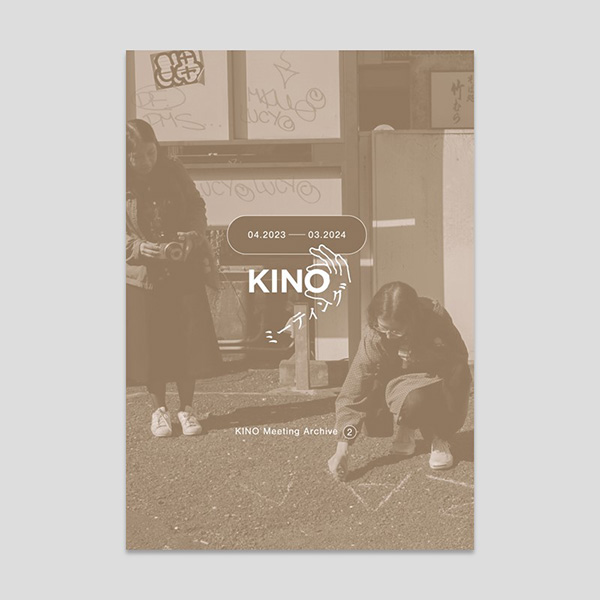
Tokyo Artpoint Project is Arts Council Tokyo’s wide-ranging program of art projects organized with Tokyo Metropolitan Government as well as nonprofits and other partners. Through what we call “art points,” Tokyo Artpoint Project finds new ways of looking at the issues that the city faces, uncovers until-now unseen problems, and creates fresh approaches to these challenges.
Since launching in 2009, Tokyo Artpoint Project has worked with 56 organizations and carried out 45 projects in the city to date (April 2022).
By “art point,” we mean a hub, a community, or a place where people come together and do creative things.
An art point aims to utilize the unique nature of art to challenge norms, uncover issues, and form connections across fields, and to sustainably facilitate art projects that encourage community engagement.
Tokyo Artpoint Project undertakes a wide range of mid- and long-term operational and community support to foster art points in the city sustainably.
In Japan in the 1990s, new forms of contemporary art activities began to emerge that centered on collaboration and social engagement. These activities, which generate novel artistic and social contexts by seeding new contact points and connections outside of preexisting ones, are described as art projects. Often closely related to a specific location and community, art projects are led not only by artists, but frequently involve collaboration with a various people and stakeholders, including local governments, universities, corporations, and groups from the civil society.
Through art projects that encourage participation and interaction with other people, Tokyo Artpoint Project seeks to bring invisible problems and mindsets out into the open, and to conceive approaches that can work toward resolutions.
In our rapidly changing world, to build a society in which people play a flexible and central role in culture and arts.
To foster people who can think and harness their artistic and cultural powers in response to society. To provide mid- and long-term support in growing those activities sustainably.
Since launching in 2009, Tokyo Artpoint Project has worked with 56 organizations and carried out 45 projects to date (April 2022).
Tokyo Artpoint Project is Arts Council Tokyo’s wide-ranging program of art projects organized with Tokyo Metropolitan Government as well as nonprofits and other partners. Forming a link between Tokyo Metropolitan Government and the partners with whom we initiate projects, we engage with the aims and challenges of Tokyo’s cultural policies, and explore new directions for art projects. Tokyo Artpoint Project also works with specialists and experts to review partner organizations and assess projects.
Tokyo Artpoint Project has published over 270 reports. A selection are available in English online as PDFs.

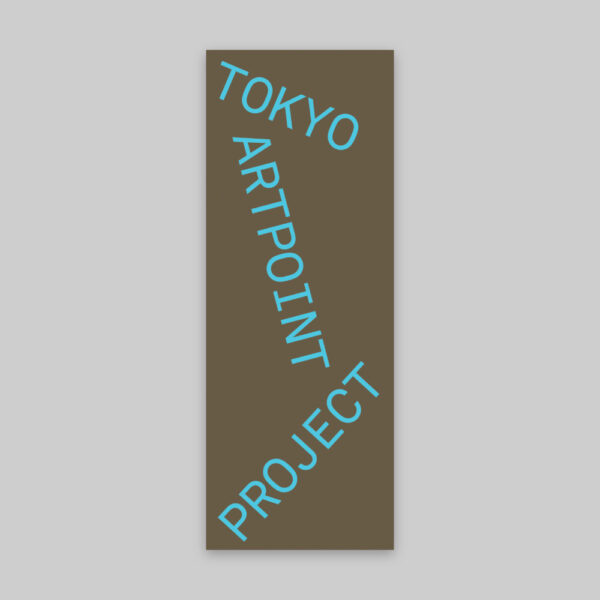
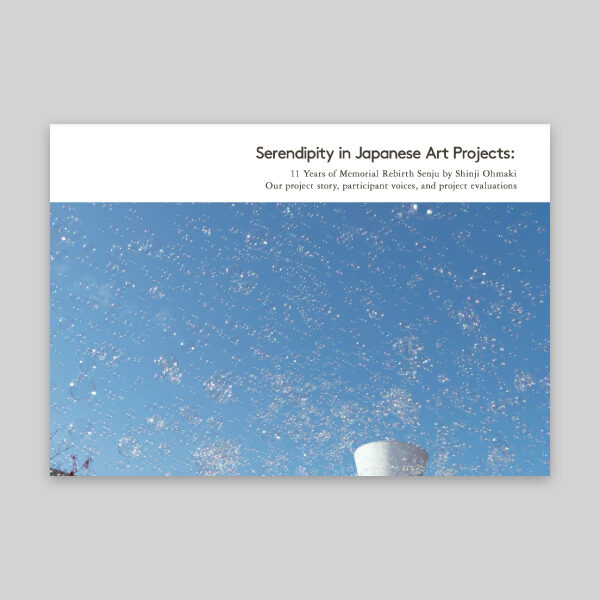
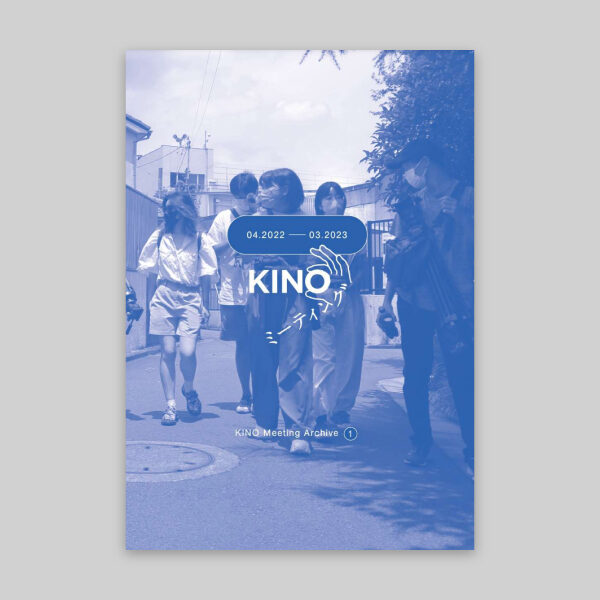
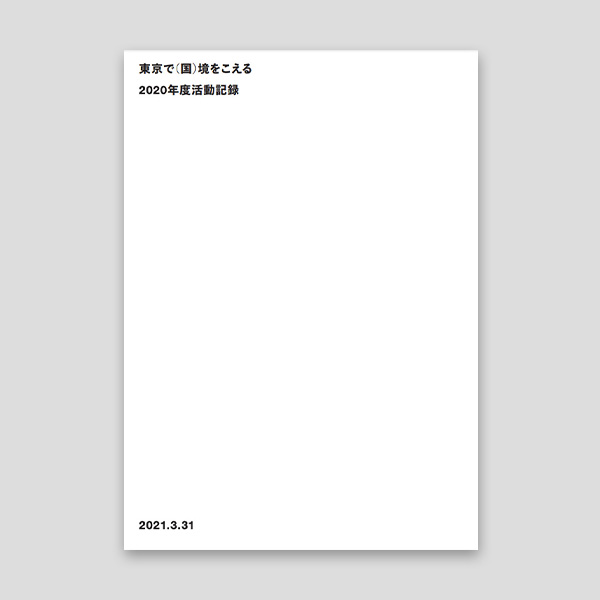
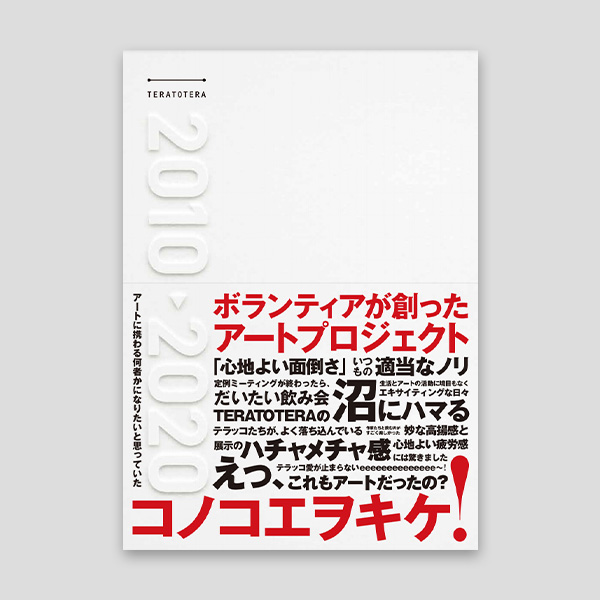
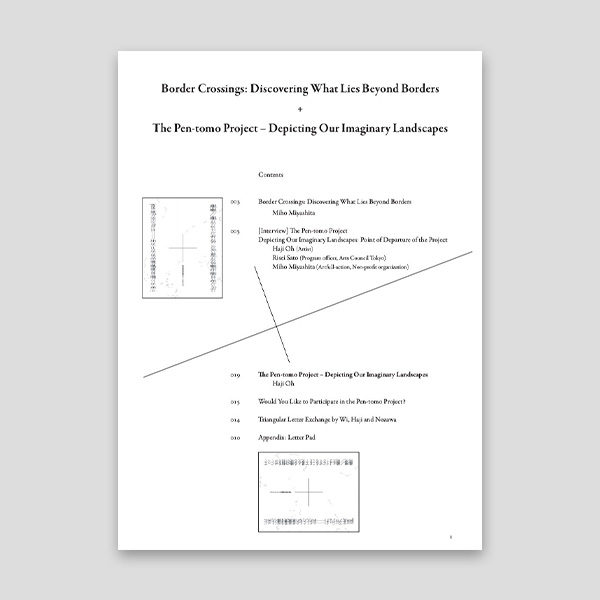
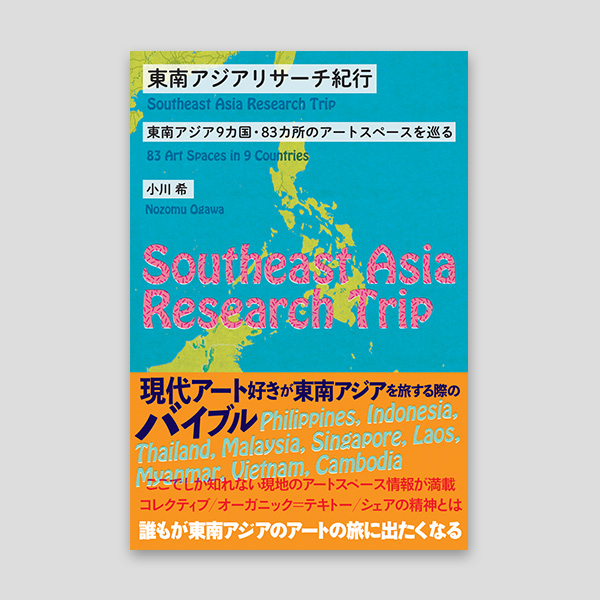
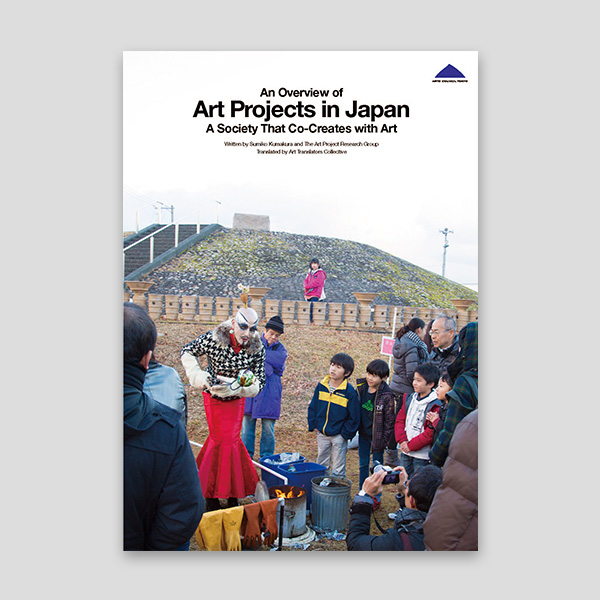
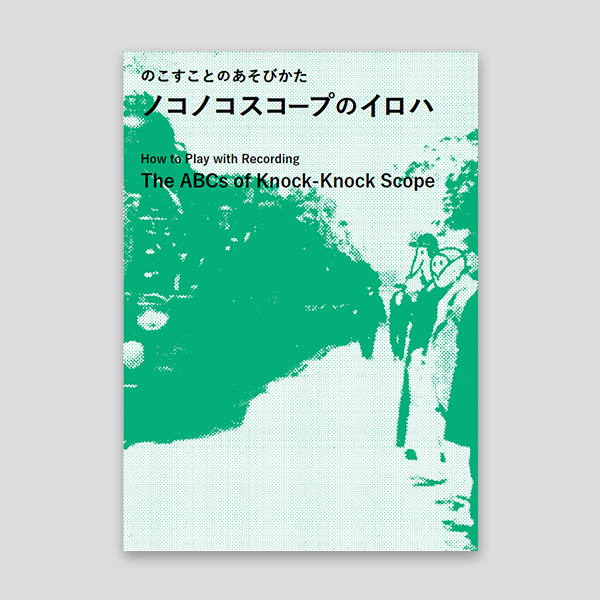
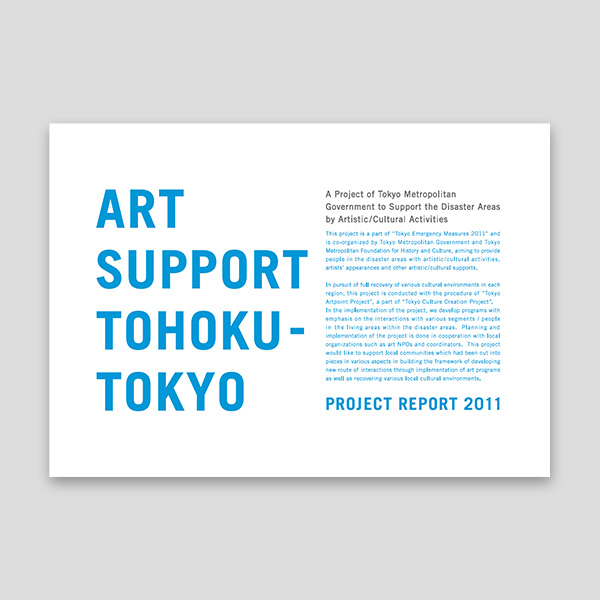
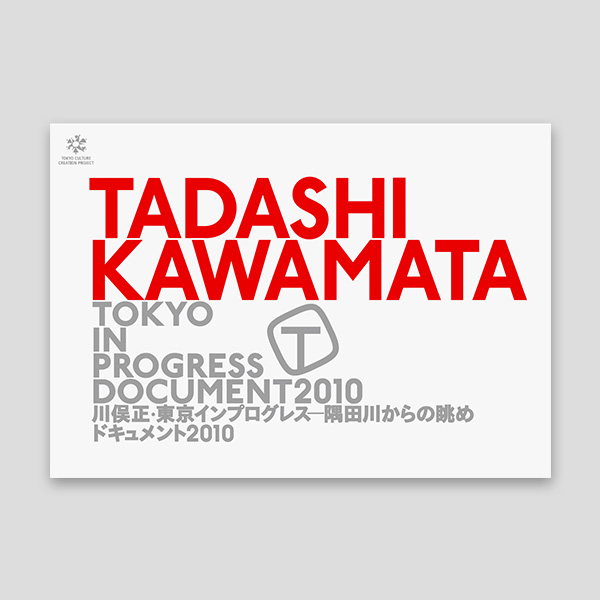
Here, we introduce several partners with whom we have organized projects. We asked them to share their honest impressions about Tokyo Artpoint Project and their experience of organizing the project together.
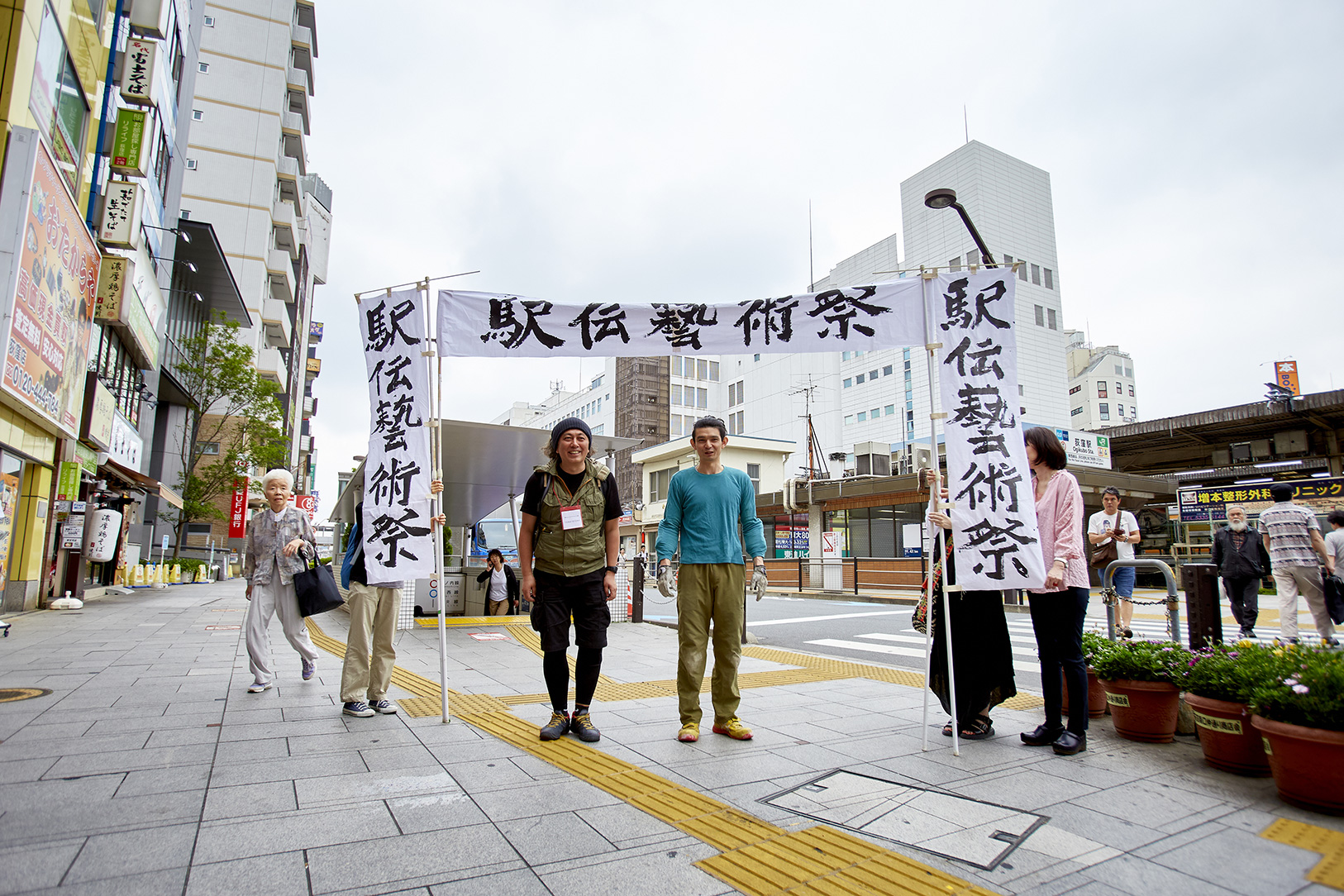
The art project TERATOTERA was held in the area of Suginami, a part of Tokyo popular with young people and where many musicians and artists live and work. Along with organizing an exhibition in the city about social conditions like the invisible divisions and concepts of the public, it contributed to training and developing human resources by working with a team of volunteers. The key people behind TERATOTERA have since formed a new organization called Teraccollective to continue the work of the project.
Artists, who usually present their work in spaces like galleries and
museums that are, in a sense, protected, here developed experimental forms of
expression in the unpredictable space that is in and around the city: those
literally extraordinary discoveries and growth felt, not only for the artists but
also for us organizers, immeasurable. Tokyo Artpoint Project set up such a place for
experimental artistic practices in public spaces. Evaluating the social values and
significance obtained there is perhaps something that will happen over time in the
future, but what I can say for sure is that the experiences gained at that
experimental place were of immense value for the artists involved and us, and
continue to influence our activities.
Ogawa Nozomu (Director, Art Center Ongoing)
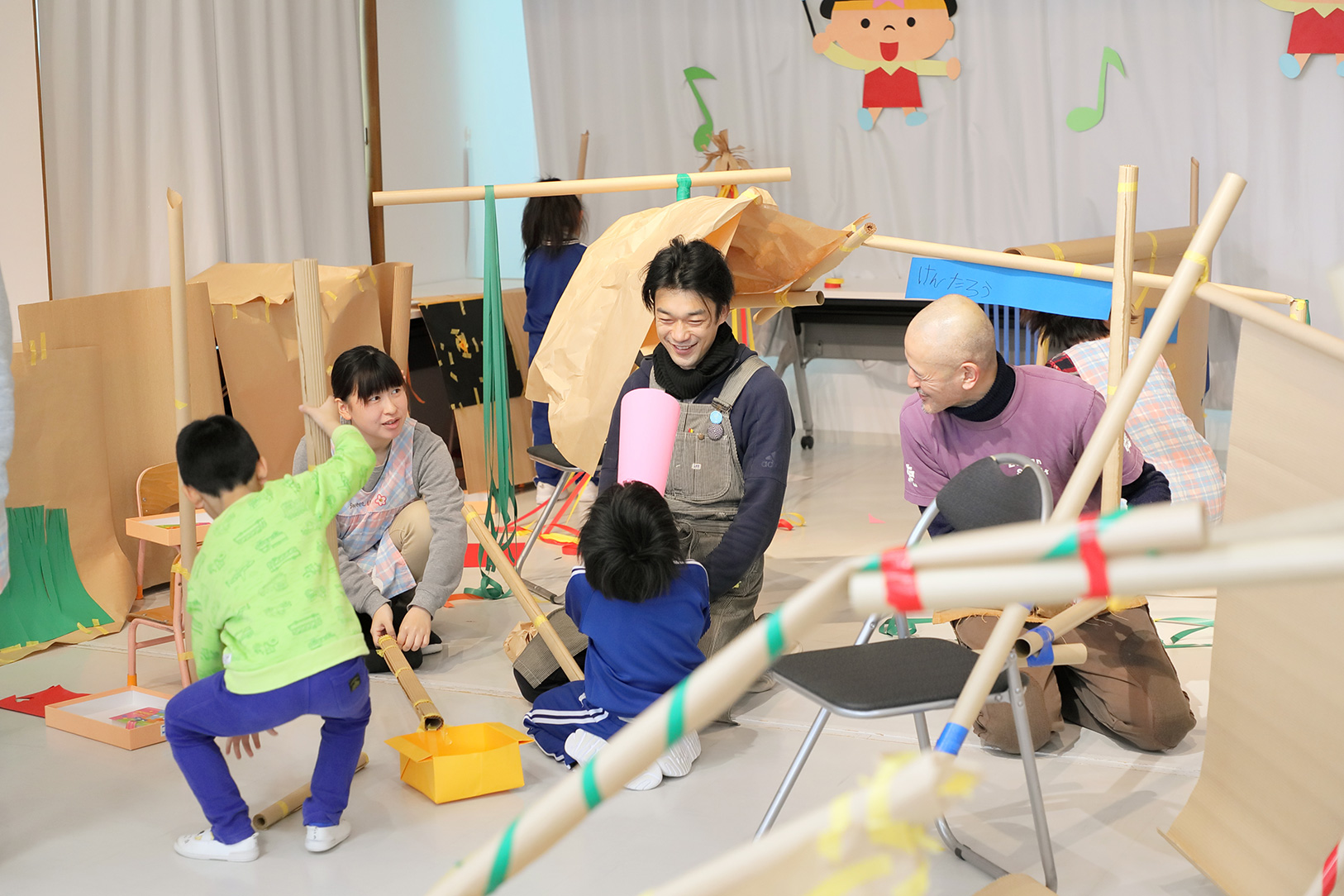
In Yanaka, an area in Tokyo’s Taito ward with a distinct cultural character and where vestiges of the old Shitamachi part of Edo (Tokyo) remain visible even today, Yanaka-no-Okatte held the Guru Guru Ya→Mi→ project with the aim of building a base for different kinds of people to come together daily and create culture together. Launched originally in 2009 by Tokyo University of the Arts, members of the project then formed Yanaka-no-Okatte as a standalone legal body and evolved the project further, producing many more programs involving residents, students, and others from across generations and with different nationalities, customs, and values. Yanaka-no-Okatte continues to build on this experience and expand its activities, including developing play-centered learning programs for children and working to increase accessibility for cultural programs.
We were able to accomplish dynamic activities through the project we
co-organized, achieving many connections with locals, artists, and supporters. Those
connections and the experiences we gained through the project form the basis for our
current activities. Having a partner able to accompany our experimental endeavors
and attempts to build up a foundation for our activities was very reassuring for us
as an organization that does art projects. I hope that Tokyo Artpoint Project
evolves further as an opportunity for various organizations’ efforts and endeavors
in the future, and that a rich array of cultural activities continue to emerge in
Tokyo.
Watanabe Rieko (Director, Yanaka-no-Okatte)
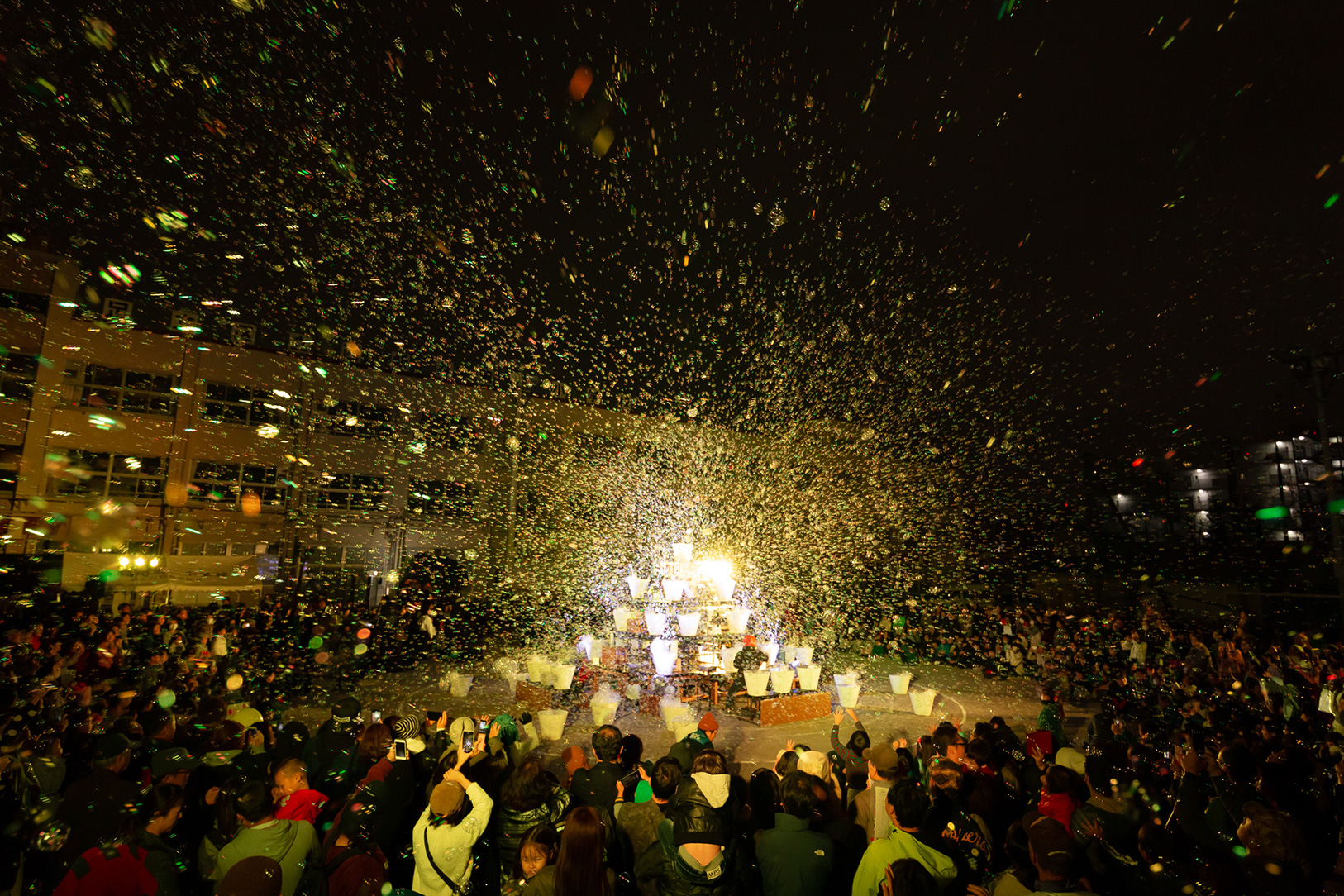
In the Senju area of Adachi ward, Tokyo, which flourished as a post town in the Edo period and where traces of that old culture remain even in the highly developed city of today, OTOMACHI PROJECT co-organized Art Access Adachi: Downtown Senju – Connecting through Sound Art with the aim of creating new bonds through art in contemporary society, where such interpersonal connections have diminished. In partnership with Tokyo University of the Arts, which has a campus in Senju, Art Access Adachi encompassed a range of programs involving artists and residents, and a cultural salon inside an old Japanese house, in this way building various links with the community. OTOMACHI PROJECT continues to develop its cooperative relationship with Tokyo University of the Arts and Adachi ward, and organize many kinds of activities.
The project we organized with Tokyo Artpoint Project fostered our
management skills. Not only for basic administrative know-how like writing up a
proposal or accounting documents, and setting up meetings, they also advised us
appropriately in a wide range of ways, including about engaging in dialogue with
artists and residents, and publicity, and our organizational abilities greatly
improved over the course of our partnership. This is due to the co-organizer system
by which a program officer closely accompanies the project. The improvements to our
administrative know-how enabled us to gain more social credibility and led to recent
selections for more grants. I hope that Tokyo Artpoint Project continues to support
small organizations like ours that are engaged in meaningful activities.
Yoshida Takeshi (Director, Art Access Adachi: Downtown Senju – Connecting
through Sound Art)
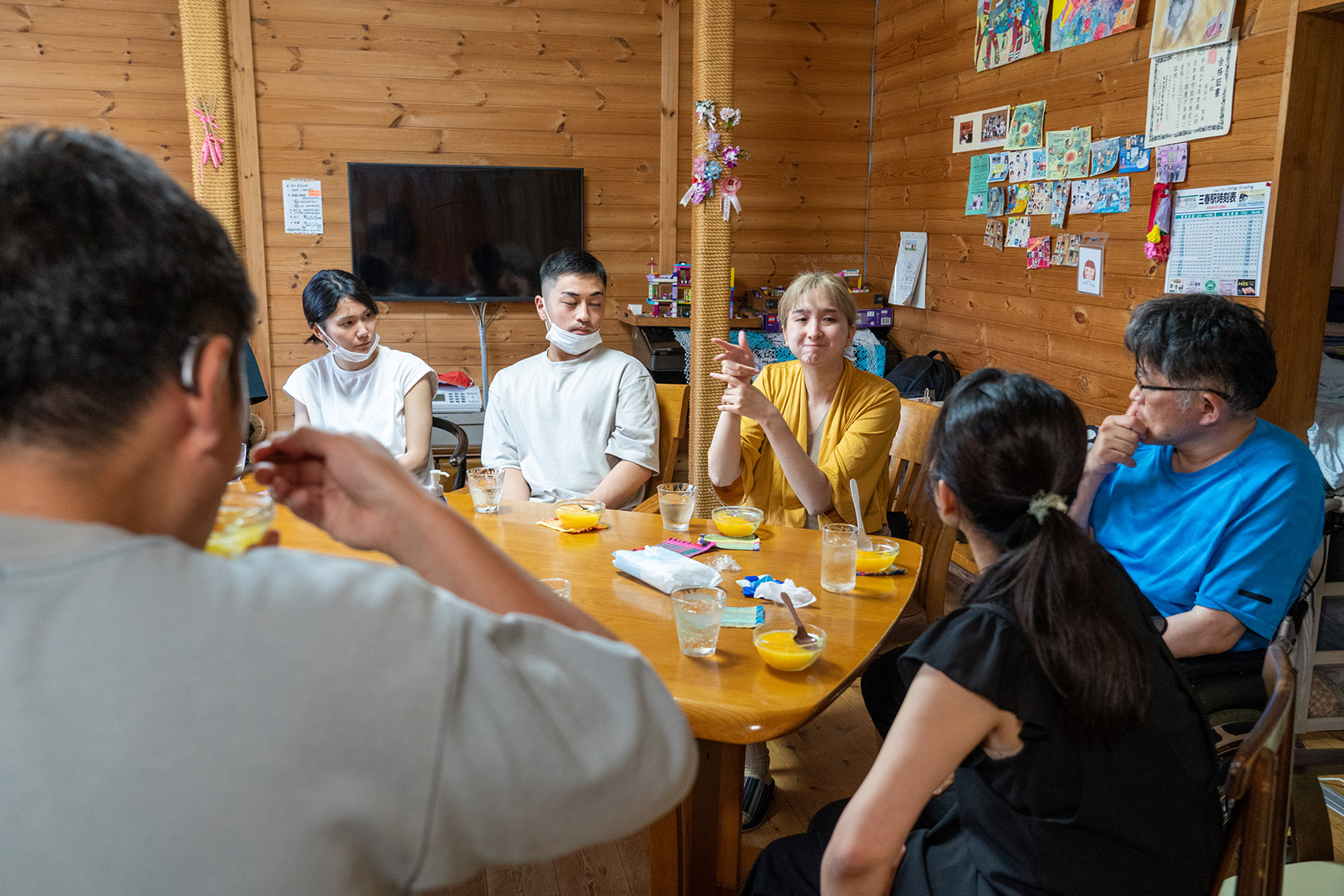
Led by deaf and hard of hearing people,children of deaf adults (CODA), and other users of visual modality (specifically, Japanese Sign Language), ooo’s Metote Lab creates opportunities to communicate in partnership with those who experience or perceive the world differently. Examining the Deaf culture that has emerged from signing, and tracing its perspectives and language, the project researches and develops ways for people with diverse backgrounds to communicate based on a mutual acceptance of cultural differences.
For ooo, which focuses on affirming and healthily nurturing different perspectives, launching Metote Lab with Tokyo Artpoint Project as a co-organizer was incredibly significant. Having Tokyo Artpoint Project accompany and valorize our activities encouraged and allowed us to expand our efforts. We could produce various ways of coming into contact with others and of shaping the things you want to do. Several challenges remain regarding language and the culture that comes from that, but we found the versatile framework of working with Tokyo Artpoint Project as a partner very reassuring in that it enabled us to search for the solutions to those problems together, and also look for means of creating a structure for continuing our exploratory efforts.
Wada Natsumi (Director, ooo / Producer, Metote Lab)
Tokyo Artpoint Project has a director and seven program officers. The program officers are arts management specialists who form a bridge between Tokyo Metropolitan Government’s policies and the partner organizations who plan and run the projects. Program officers are usually assigned in pairs to a partner organization, and each program officer works with two or three partner organizations throughout the year.
The overall budget changes on a yearly basis depending on the amount of funding available from the Tokyo Metropolitan Foundation for History and Culture and external grants. In fiscal 2021, the budget was ¥108 million, of which ¥94 million was allocated to funding projects.
Around nine or ten art projects are co-organized yearly. The funding for each is decided in discussion with partners in regard to the aims, features, and level of the project. Many projects begin with a budget of ¥5 million, which can increase to over ¥10 million through subsequently obtaining external funding or additional funding from us in accordance with the reach and aims of the project.
Subsidy for cultural projects in Japan is available almost entirely as grants for production costs, and very little support is offered for operating and administrative costs, including personnel. In order to facilitate sustainable activities, Tokyo Artpoint Project enables partner organizations to allocate one-third or half the overall project funding for labor costs.
Tokyo Artpoint Project appoints a partner review and selection committee comprising outside specialists and experts, who meet twice a year to make assessments. They assess projects based on a range of perspectives, including project aims and planning, project effectiveness, potential for future development, and compatibility with Tokyo Metropolitan Government’s cultural policies. The same committee also selects new partner organizations based on applicants’ suitability with the set themes as well as the originality, level of planning, and scalability of the proposed project.
Moreover, Tokyo Artpoint Project has an external review committee that is well versed in art projects. The committee provides a comprehensive, overall assessment of Tokyo Artpoint Project at the end of the fiscal year.
Please see the What people say page.
Different roles are fulfilled by different sides when organizing the projects. The design of the project is undertaken by the partner organization. Tokyo Artpoint Project’s role is to offer specialist perspectives and coordinate with Tokyo Metropolitan Government to realize the project. During this process, we check that project partners are complying with certain rules over how funding is spent, such as not using the budget to pay for food and drink, but we don’t censor or attempt to control the nature of the project.
With its highly fluid population, Tokyo is a city where building and maintaining a sense of community and kinship can be difficult. Tokyo faces various issues, not least loneliness, discrimination, intolerance, and disparity, but especially in the central parts of the city, where community ties are weaker, these tend to be reduced to problems for individuals to deal with, rather than society as a whole. They frequently remain hidden and ways to resolve these issues are harder to detect. By organizing site-specific art projects in the city on a sustained basis, Tokyo Artpoint Project hopes to build visible relationships and places of belonging, which will lead to new places for citizens to take on active roles. Through art projects, we uncover problems that had become difficult to see or were hidden until now, and create ways to approach these issues.
They are similar in terms of being closely connected to contemporary society and related to the social contexts of a particular place and point in time. However, socially engaged art often features political messages and explicitly critical perspectives. The art projects that we co-organize approach issues that individuals face and search for expected challenges and new ways of dealing with them, and emphasize cooperative activities within the sphere of everyday life in collaboration with artists and non-artists alike. We aim to empower our project partners to make that possible, and to connect those projects to improving our lives in society today.
Articles in the media about Tokyo Artpoint Project, interviews with partners and the Tokyo Artpoint Project director, and various other content is available here.
Tokyo Council for the Arts established. Deliberations begin over Olympic cultural programming.
Tokyo Culture Creation Project established as part of Tokyo Metropolitan Foundation for History and Culture.
Within Tokyo Culture Creation Project, Tokyo Artpoint Project launches as a further development of the proposed “Thousand Knots” cultural policy for Tokyo Metropolitan Government.
Tokyo Art Research Lab (TARL) launches as a research program for art project practitioners.
Art Support Tohoku-Tokyo (ASTT) launches to support Great East Japan Earthquake reconstruction efforts through Tokyo Artpoint Project’s approaches.
Tokyo Culture Creation Project merges with Arts Council Tokyo to form a single initiative for creating and disseminating arts and culture.
Open call for new partners.
Publishes a report, “Future Culture: Discussion in a Ten-Year Period—Tokyo Artpoint Project 2009–2018,” summarizing its decade of activities.
Launches Jimu-Gym, a study group about administration and networking project for partner organizations.
Theme-based open call for new partners.
Project Coordination Division, Project Department
Arts Council Tokyo
Tokyo Metropolitan Foundation for History and Culture
E-mail:info-ap@artscouncil-tokyo.jp
https://www.artscouncil-tokyo.jp